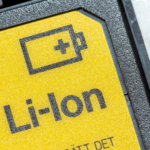
On Monday, Oct. 21, Mercedes-Benz opened Europe’s first battery recycling plant with an integrated mechanical-hydrometallurgical process. The recycling plant in Kuppenheim, southern Germany, aims to create a circular economy and close the battery recycling loop.
Valuable and scarce raw materials such as lithium, nickel, and cobalt can be recovered—in a way suitable for use in new batteries for future all-electric Mercedes-Benz vehicles. The company has invested tens of millions of euros in the construction of the new battery recycling plant.
Federal Chancellor Olaf Scholz and Baden-Württemberg’s Environment Minister Thekla Walker visited the plant for the opening ceremony in Kuppenheim, Baden.
“The future of the automobile is electric, and batteries are an essential component of this,” Scholz said. “To produce batteries in a resource-conserving and sustainable way, recycling is also key. The circular economy is a growth engine and, at the same time, an essential building block for achieving our climate targets! I congratulate Mercedes-Benz for its courage and foresight shown by this investment in Kuppenheim. Germany remains a cutting-edge market for new and innovative technologies.”
Mercedes-Benz’s technology partner for the battery recycling factory is Primobius, a joint venture between German plant and mechanical engineering company SMS group and Australian process technology developer Neometals. The plant is receiving funding from the German Federal Ministry for Economic Affairs and Climate Action as part of a scientific research project with three German universities. The project looks at the entire process chain for recycling, including logistics and reintegration concepts.
“Mercedes-Benz has set itself the goal of building the most desirable cars in a sustainable way. As a pioneer in automotive engineering, Europe’s first integrated mechanical-hydrometallurgical battery recycling factory marks a key milestone towards enhancing raw-materials sustainability,” said Ola Källenius, chairman of the board of management of Mercedes-Benz Group AG. “Together with our partners from industry and science, we are sending a strong signal of innovative strength for sustainable electric mobility and value creation in Germany and Europe.”
The hydrometallurgical process is less intensive in terms of energy consumption and material waste. Its low process temperatures of up to 80 degrees Celsius mean it consumes less energy. In addition, like all Mercedes-Benz production plants, the recycling plant operates in a net carbon-neutral manner. It is supplied with 100% green electricity. The roof area of the 6,800 square-meter building is equipped with a photovoltaic system with a peak output of more than 350 kilowatts.
The Mercedes-Benz battery recycling plant in Kuppenheim has an annual capacity of 2,500 tons. The recovered materials feed into the production of more than 50,000 battery modules for new all-electric Mercedes-Benz models.

On Monday, Oct. 21, Mercedes-Benz opened Europe’s first battery recycling plant with an integrated mechanical-hydrometallurgical...